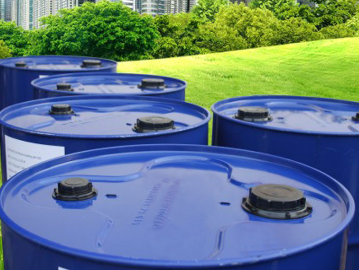Silicone rubber is a versatile material that has revolutionized various modern industries due to its exceptional properties and characteristics. It has found widespread use across sectors such as automotive, construction, electronics, healthcare, and many more, bringing about significant advancements and innovations. This article will discuss some of the ways silicone rubber has transformed these industries.

One of the primary reasons silicone rubber has gained popularity is its extreme temperature resistance. It can withstand both high and low temperatures, making it an ideal material for use in industries dealing with extreme heat or cold. In the automotive sector, for instance, silicone rubber is used in engine gaskets and seals, where it maintains its properties even in the presence of high temperatures and oil exposure. This has led to improved engine performance and durability.
In the construction industry, silicone rubber's resistance to extreme temperatures makes it an excellent material for weatherproofing and sealing applications. It is used in the production of sealants, adhesives, and coatings that protect buildings from harsh weather conditions, such as rain, snow, and UV radiation. Silicone rubber's durability and flexibility ensure long-lasting and effective protection, reducing the need for frequent maintenance and repairs.
Another advantageous property of silicone rubber is its excellent electrical insulation capabilities. This has made a significant impact on the electronics industry, where the use of silicone rubber has revolutionized the design and production of electronic devices. Silicone rubber is used to create insulation materials for cables, connectors, and electronic components, ensuring safe and reliable performance. Additionally, its resistance to moisture and chemicals makes it ideal for applications in harsh environments.
In the healthcare sector, silicone rubber has played a crucial role in the development of medical devices and equipment. Its biocompatibility, hypoallergenic properties, and ease of sterilization have made it the material of choice for various medical applications. Silicone rubber is used in the production of implants, such as breast implants, as well as in the manufacturing of medical tubing, masks, and seals. Its flexibility and softness provide comfort to patients, while its non-reactive nature ensures compatibility with the human body.
Silicone rubber has also revolutionized the manufacturing of household and kitchen products. Its non-stick properties have made it an essential material for the production of baking mats, molds, and kitchen utensils. Silicone rubber's ability to withstand high temperatures without melting or releasing harmful chemicals ensures safe and convenient cooking experiences. It has replaced traditional materials like metal and glass in numerous cooking and baking applications.
The versatility of silicone rubber has also led to its use in the fashion and textile industry. It is employed in the production of elastic bands, wristbands, and clothing accessories due to its stretchability and durability. Silicone rubber coatings and treatments are applied to fabrics to provide additional properties such as water repellency or flame resistance. The fashion industry has embraced silicone rubber for its unique aesthetic appeal and functional performance.
Furthermore, silicone rubber has benefited the energy sector by contributing to the development of renewable energy technologies. Solar panels, for instance, utilize silicone rubber encapsulation materials to protect photovoltaic cells from moisture, temperature fluctuations, and mechanical stress. The material's long-term stability and resistance to UV radiation ensure the durability and performance of solar panels, leading to improved efficiency and reduced maintenance costs.
In conclusion, silicone rubber has revolutionized various modern industries through its exceptional properties. Its extreme temperature resistance, electrical insulation capabilities, biocompatibility, and versatility have led to advancements in automotive, construction, electronics, healthcare, and many other sectors. The use of silicone rubber has improved the performance, durability, and safety of products and technologies, thereby driving innovation and enhancing the overall quality of modern industries.